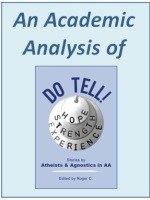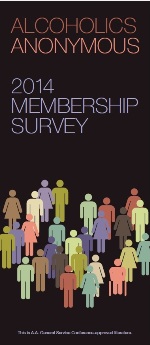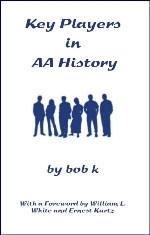Originally published in Our Primary Purpose,
the newsletter of the Ottawa Area Intergroup
Covid-19 helps Ottawa’s secular sobriety movement
Little did Michel D know when he started Ottawa’s first secular AA group, in early March 2016, that five years later there would be three weekly secular meetings on the calendar. And that a global pandemic might be helping to encourage both newcomers and old-timers alike to try a new and different Alcoholics Anonymous experience.
When Covid-19 shuttered doors to the rooms of AA, members started going online. And some have decided to take advantage of the opportunity to explore new approaches like secularism.
What is Secular AA? It’s a movement that seeks to widen our view so that all who suffer may discover long-term sobriety in AA regardless of their belief or lack of belief in a God.
“I already had 30 years of sobriety when I started that first secular meeting and it was still scary to go against the flow, and to try doing something outside the AA mainstream,” said Michel.
But as Ottawa’s secular movement celebrates it’s 5th anniversary, Michel can take pride in the idea that he and others are truly part of a growing global effort pushing AA to become an ever more inclusive fellowship, one that welcomes the suffering alcoholic no matter what their religious affiliation or belief system might be.
“With over 500 (secular) fellowships world-wide using the 12 Steps as a framework for recovery, there’s no denying the impact that AA founders Bill W and Dr. Bob have already had. And just as these far-reaching fellowships have reinterpreted the 12 Steps, AA must continue to do the same if it’s going to survive and stay relevant,” said Michel.
Like other so-called “special purpose groups” under the AA umbrella, secularism can be, for some, a polarizing notion, pitting believer against non-believer. But it doesn’t have to be that way.
“Our goal here in Ottawa is to be as open-minded as possible, so that anyone, no matter how they approach their sobriety, can feel at home in our midst. Our secular credo gives everyone the ability to freely express themselves, while asking that they offer the same courtesy to others in the discussion,” said Michel.
Andy Mc had almost 40 years of sobriety when he discovered Secular AA, and he’s convinced the pandemic played a role in opening the door to a whole new chapter of his recovery journey. If not by design, then perhaps by the grace of a Higher Power.
Last spring, Andy, who is retired and spends his time between Bracebridge and London, Ontario, was focused on trying to help his home group transition to virtual meetings. Unfortunately, his group did not survive the move online, so he went searching for alternatives.
“I wasn’t necessarily looking for a secular option when I googled AA meetings online. But a group in Florida, called OMAGOD – Our Mostly Agnostic Group of Drunks, caught my eye, so I decided to check it out. I really liked their approach, and after the novelty of going to a Florida-based meeting wore off, I decided to look for secular groups closer to home.”
That’s when he discovered Ottawa’s Secular Sobriety Group which meets Sunday night, online, at 7:30 pm. Now, almost a year into the pandemic, Andy is attending upwards of five secular meetings a week, mostly based out of Eastern Ontario. He also attends Ottawa’s Beyond Belief Secular Group, Thursday night, 7 pm.
“I’ve learned to tone it down over the years; at one time I could get into a pretty heated discussion with some members of the fellowship who I thought were a bit too rigid in their thinking. I just couldn’t let others try to tell me that I would only stay sober if I believed in God.”
Andy said what keeps him coming back to secular meetings is the free-thinking; he’s convinced that more and more members are taking advantage of online platforms to kick the tires on Secular AA.
“No doubt in my mind, Covid-19 and the endless list of online meetings all over the country, and the world, has cemented the ‘secular’ movement within AA. And I think that’s great. It’s given people like me who were feeling restless and disenfranchised a way to stay more engaged and connected to this amazing program.”
The AA tent is getting bigger
As recent as 2000, there were no more than 50 secular AA meetings across the globe. By the time the pandemic hit there were around 600. Now, a year later, there are easily more than 1,000 such meetings worldwide.
“It’s been most encouraging to see how quickly AA adapted to the new normal after Covid-19 arrived,” said Joe C, a leader in the Toronto secular movement, and a founder of the group Beyond Belief Agnostics & Freethinkers.
“We are seeing our numbers swell. Our Saturday discussion group is now attracting more than 100 participants. And it’s not only agnostics and atheists who are showing up. We have plenty of so-called believers who are also joining us. Some of them had simply walked away from AA. They weren’t mad, just fatigued, and simply looking for something new and different to fill the void.”
Joe points to the many and diverse AA special interest groups that have started over the past few decades. Groups for women, African Americans, Lesbian, Gay, Bisexual, Transgendered people, young people, seniors, professionals, special needs people, Indigenous peoples, and many more.
“In the end, those who have moved away from the mainstream are simply doing what Bill W had wished for. He called it pioneering, and he insisted that AAs had to continue to go through the same pioneering efforts in order to keep the fellowship vital and relevant.”
The post Five Years Old and Growing Stronger first appeared on AA Agnostica.




![Do Tell! [Front Cover]](https://nrdblogs.nationalrehabdirectory.net/wp-content/uploads/2020/09/Do-Tell-Full-Blue-Front-Cover-200-FRAMED.jpg) This is a chapter from the book: Do Tell! Stories by Atheists and Agnostics in AA.
This is a chapter from the book: Do Tell! Stories by Atheists and Agnostics in AA. 
 The most recent comprehensive
The most recent comprehensive 

 ). Here are his earlier articles:
). Here are his earlier articles: